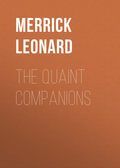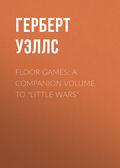
Герберт Джордж Уэллс
The Invisible Man. B2 / Человек-невидимка
Chapter 3
The Thousand and One Bottles
The next day the stranger's luggage arrived through the slush. There was a pair of trunks and a box of books-big, thick books, some of which were just in an incomprehensible handwriting-and a dozen or more boxes and cases, containing glass bottles. The stranger, muffled in his hat, coat and gloves, came out impatiently to meet the cart. “Come along with those boxes,” he said. “I've been waiting long enough.”
Then he turned and rushed swiftly up the steps into the inn. Mr. Hall went straight upstairs, and the stranger's door being ajar, he pushed it open and entered.
The blind was down and the room dim. He caught a glimpse of what seemed a handless arm waving towards him. Then he was struck violently in the chest, hurled back, and the door slammed in his face and locked. It was so rapid that it gave him no time to observe.
A couple of minutes after, he joined the little group outside the “Coach and Horses.”
Mr. Hall, staring at them from the steps and listening, found it incredible that he had seen upstairs. Besides, his vocabulary was too limited to express his impressions.
“Come along,” cried an angry voice in the doorway. “The sooner you get those things in the better. Hurry up!”
When the first box was carried into the parlour, the stranger flung himself upon it eagerly, and began to unpack it, scattering the straw on Mrs. Hall's carpet. And from it he began to produce bottles-little bottles containing powders, small and slender bottles with coloured and white fluids, blue bottles labeled Poison, bottles with round bodies and slender necks, large green glass bottles, large white glass bottles-putting them in rows everywhere.
The stranger went to the window and set to work, not bothering in the least about the litter of straw, the fire which had gone out, the box of books outside or the trunks and his other luggage that had gone upstairs.
When Mrs. Hall brought his dinner, he was already so absorbed in his work that he did not hear her until she had put the tray on the table.
Then he half turned his head and immediately turned it away again. But she saw he had removed his glasses; and it seemed to her that his eye sockets were extraordinarily hollow. He put on his spectacles again, and then turned and faced her.
“I wish you wouldn't come in without knocking,” he said in the tone of abnormal exasperation that seemed so characteristic of him.
“I knocked, but – ”
“Perhaps you did. But in my investigations-my really very urgent and necessary investigations-the slightest disturbance-I must ask you-”
“Certainly, sir. You can turn the lock any time.”
“A very good idea,” said the stranger.
“This straw, sir, if I might remark-” “Don't. If the straw makes trouble put it down on the bill.” He was so odd, standing there, so aggressive, with a bottle in one hand and a test tube in the other, that Mrs. Hall was quite alarmed.
All the afternoon he worked in silence with the door locked. But once there was a sound of bottles ringing together and the smash of a bottle flung violently down, and then a rapid pacing along the room. Fearing “something was the matter,” she went to the door and listened.
“I can't go on,” he was raving. “All my life it may take me!.. Patience! Patience indeed!.. Fool!”
When Mrs. Hall took in his tea she saw broken glass in the corner of the room under the mirror, and a golden stain that had been carelessly wiped. She drew attention to it.
“Put it down on the bill,” snapped her visitor. “For God's sake don't worry me,” he said and went on ticking a list in the exercise book before him.
Glossary
slush [slʌʃ] – сущ. грязь, слякоть
incomprehensible [ɪn'kɔmprɪ'hen(t)səbl] – прил. малопонятный, непонятный
rush [rʌʃ] – гл. бросаться, мчаться, нестись
ajar [ə'ʤɑ:] – прил. приоткрытый
catchaglimpseof smb. или smth. – увидеть мельком кого-л. иличто-л.
strike [straɪk] (struck, struck) – гл. ударять, наносить удар, бить
slam [slæm] – гл. захлопывать; со стуком, шумом закрывать
scatter ['skætə] – гл. разбрасывать, рассыпать, раскидывать
row [rəu] – сущ. ряд, линия
set [set](set, set) to – гл. засесть за (работу), взяться, приняться за (что-л.)
absorbed [əb'zɔ:bd] – прил. поглощенный (чем-л.), увлеченный (чем-л.)
smash [smæʃ] – cущ. шум, грохот (при падении)
pace [peɪs] – гл. шагать, расхаживать
snap [snæp] – гл. говорить резко, отрывисто
Chapter 4
Mr. Cuss Interviews the Stranger
Mr. Hall did not like the stranger and wanted to get rid of him. Anyway, he avoided his visitor as much as possible. “Wait till the summer,” said Mrs. Hall, “Then we'll see. He may be a bit overbearing, but he settles his bills in time, whatever you'd like to say.”
The stranger did not go to church, and indeed made no difference between Sunday and weekdays. He worked, as Mrs. Hall thought, very hard. He had no communication with the world. His temper was very uncertain; once or twice things were broken in gusts of violence.
He rarely went out by daylight, but at twilight he would go for a walk. The children who saw him at night dreamt of bogies, and were afraid of him.
Everyone wondered about the stranger's occupation. Mrs. Hall explained very carefully that he was an “experimental investigator.” Her visitor had had an accident, she said, which temporarily discoloured his face and hands.
There were also opinions that he was a criminal, an Anarchist or a harmless lunatic. But whatever they thought of him, the people in Iping, on the whole, disliked him.
Cuss, the general practitioner, was devoured by curiosity. The bandages and a thousand bottles excited his professional interest.
All through April and May he looked for an opportunity of talking to the stranger.
So one day Cuss knocked at the parlour door and entered. “Pardon my intrusion,” said he, and then the door closed and Mrs. Hall, who was nearby, couldn't hear their conversation.
There was a murmur of voices, then a cry of surprise and quick steps to the door, and Cuss appeared, his face white, his eyes staring over his shoulder. He left the door open behind him, and without looking at Mrs. Hall went down the steps. Then she heard the stranger laughing quietly, and then his footsteps came across the room. She could not see his face. The door slammed, and the place was silent again.
Cuss went straight up to the village vicar. “Am I mad? Do I look like an insane person?” Cuss began abruptly, as he entered the shabby little study.
“What's happened?” asked the vicar.
“That chap at the inn-”
“Well?”
“Give me something to drink,” said Cuss, and he sat down. “Went in,” he gasped, “and asked him to subscribe for that Nurse Fund. I told him I'd heard he took an interest in scientific things. He said yes and sniffed. Bottles-chemicals-everywhere. Balance, test tubes in stands – The man was boiling with rage, and my questions boiled him over. 'Damn you! What are you fishing for?' I apologised. He read the paper I'd given him. The draft from the window lifted the paper, it caught fire, as there was an open fireplace, and whisked up the chimney. So! Just at that point out came his arm.”
“Well?”
“No hand-just an empty sleeve. There was nothing in it, I tell you. Nothing. I could see right down it to the elbow. Lord! I thought, that's a deformity! 'Good God!' I said. Then he stopped. Stared at me with those black goggles of his, and then at his sleeve.”
“Well?”
“That's all. He never said a word; just glared, and put his sleeve back in his pocket quickly. 'How the devil,' said I, 'can you move an empty sleeve like that?' 'Empty sleeve?' 'Yes,' said I, 'an empty sleeve.'
“'It's an empty sleeve, is it? You saw an empty sleeve?' He stood up right away. I stood up too. He came towards me in three very slow steps, and stood quite close.
“'You said it was an empty sleeve?' he said. 'Certainly,' I said. Then very quietly he pulled his sleeve out of his pocket again, and raised his arm towards me as though he would show it to me again. He did it very, very slowly. I looked at it. Seemed an age. 'Well?' said I, clearing my throat, 'there's nothing in it.'
“Had to say something. I was beginning to feel frightened. I could see right down it. He extended it straight towards me, slowly, slowly- And then-”
“Well?”
“Something-exactly like a finger and thumb it felt-nipped my nose.”
Bunting began to laugh.
“There wasn't anything there!” said Cuss and let out a shriek at the word “there.” “It's all very well for you to laugh, but I tell you I was so startled, I hit his cuff hard, and turned around, and ran out of the room-”
Cuss stopped. “When I hit his cuff,” said Cuss, “I tell you, it felt exactly like hitting an arm. And there wasn't an arm!”
Mr. Bunting thought it over. “It's a remarkable story,” he said. He looked very wise and grave indeed. “It's really,” said Mr. Bunting, “a remarkable story.”
Glossary
overbearing [,əuvə'bɛərɪŋ] – прил. властный, властолюбивый
settleabill – оплатить счет; урегулировать платеж по счету
temper ['tempə] – сущ. характер, нрав
generalpractitioner – врач общей практики, терапевт
vicar ['vɪkə] – сущ. приходский священник; викарий
insane [ɪn'seɪn] – прил. душевнобольной, ненормальный, сумасшедший, безумный
subscribe [səb'skraɪb] – гл. (subscribe for) подписываться (на ценные бумаги)
take an interest in smth – интересоваться чем-л.
boil [bɔɪl] – гл. кипеть, бурлить (от гнева и т. п.)
fish [fɪʃ]for – гл. выуживать (секреты)
deformity [dɪ'fɔ:mɪtɪ] – сущ. дефект, уродливость; уродство (физическое или нравственное)
letoutashriek – взвизгнуть, пронзительно закричать






